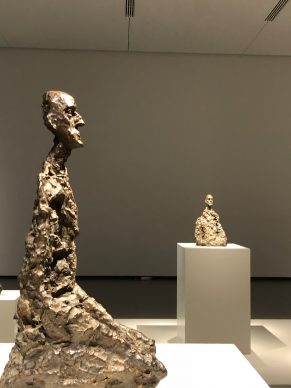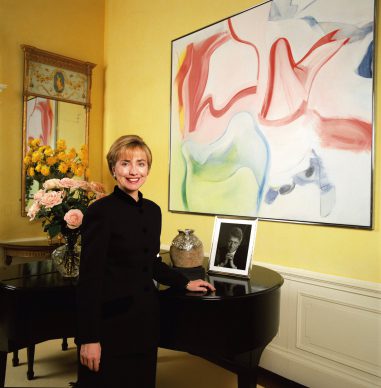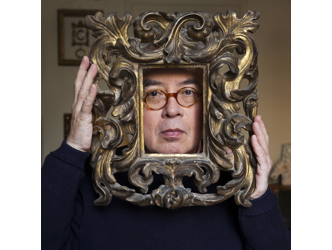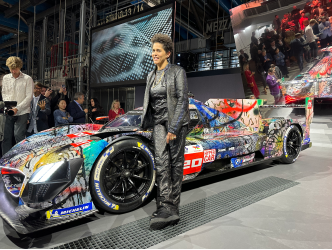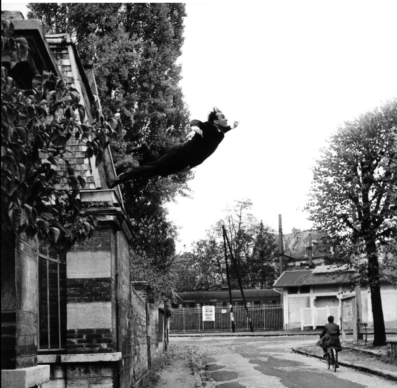
Yves Klein
Coming from the sky
Didn’t you know? Everything comes from above. In the 1940s watching the sky meant looking for planes that were going to bomb you. That’s where the H-bomb came from, which reduced people to human torches and annihilated all warlike sentiment by force.
Day of Peace

Yves Klein
Just look at the Japanese, who now commemorate the day of the bombing of Hiroshima, 6 August, as a “day of peace”.
As far as the moon
From the 1950s onwards humanity also travelled through the sky to reach space, as far as the moon itself. A giant leap for mankind…
Universal dream
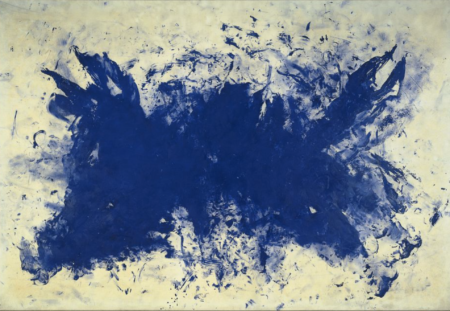
Yves Klein
Artists also partake in this obsession, half nightmare, half universal dream. One of the most magnetic among them, Yves Klein (1928-1962), is at the centre of an exceptional show currently being staged by the Centre Pompidou Metz.
Deep blue
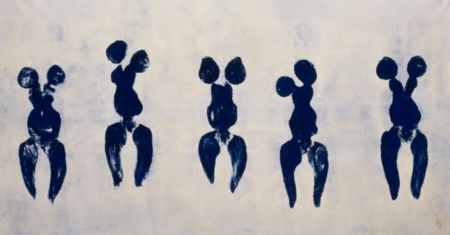
Yves Klein
It spotlights much more than his famous deep blue paintings, featuring at the same time the more “spatial” part of his oeuvre but also the strong links he maintained with a number of his contemporaries around the world, artists who were interested in the same subject. It is an oneiric and aesthetic journey which must be shared while international visits seem impossible for now.
Black belt in Judo
It was most likely in Tokyo between 1952 and 1954 that the little Nice native became a mystical theorist of art. It was there that he would obtain his black belt in judo.
Emma Lavigne
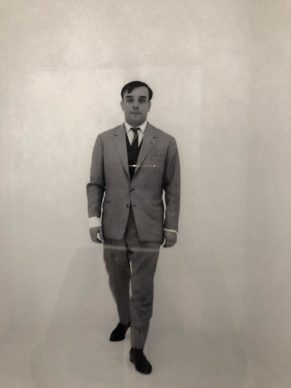
Yves Klein
As the curator of the exhibition Emma Lavigne explains, “judo is for him first and foremost a mental discipline.” She adds more generally: “My aim was not to situate Klein once again within the movement he’s usually associated with, that of the Nouveaux Réalistes, but rather alongside artists who worked with the idea of destruction following the Second World War.”
Osaka
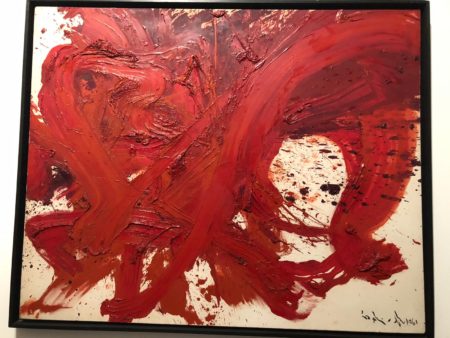
Kazuo Shiraga
At the same time in Osaka there was a burgeoning movement surrounding performance of the body and opposition to painting’s diktats by a group known as Gutai. Its influence on Klein is little known. But we do know for example that one of its members, Kazuo Shiraga (1924-2008), suspended himself from a rope to paint the canvas on the ground and make paintings in that way.
War atrocities
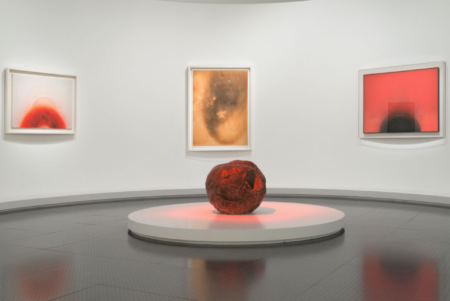
L Fontana, O Piene, Y Klein
Reds: they express the atrocities he witnessed during the war. “I wanted to paint as though I was running in all directions on a battlefield,” he claimed. It makes us think of Klein’s anthropometries featuring the traces of women’s bodies imprinted on paper.
Defied gravity
The Nice artist once said: “I devised a sort of ballet of girls smeared on a grand canvas which resembled the white mat of judo”. These bodies, like crossbows, defied gravity. Empty space, fire, water and air were also used by the artist, who fought for an “immaterial art” and proclaimed: “my works are only the ashes of my art.”
Slashed monochrome
The exhibition also examines his relationship with the Italian Lucio Fontana (1899-1968), who since the 1940s created his “Environments” and then his “Cuts”, his slashed monochrome works from 1958.
Luca Massimo Barbero
The Venetian Fontana specialist Luca Massimo Barbero explains that at that time Milan was the epicentre of the avant-garde and that was where the antidote to American contemporary art could be found.
The room devoted to Klein’s monochromes in blue, red, green, pink etc. is the high point of the exhibition layout. As pieces of suspended coloured matter, they are extracts from the universe of Yves Klein, who ascended to the heavens definitively at the age of 34.
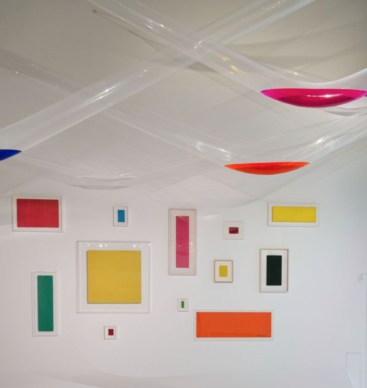
Sadamasa Motonaga, Yves Klein
Le ciel comme atelier. Yves Klein et ses contemporains (The Sky as a Studio. Yves Klein and his contemporaries)
www.centrepompidoumetz.fr Until 1 February, 2021.
Support independent news on art.
Your contribution : Make a monthly commitment to support JB Reports or a one off contribution as and when you feel like it. Choose the option that suits you best.
Need to cancel a recurring donation? Please go here.
The donation is considered to be a subscription for a fee set by the donor and for a duration also set by the donor.

